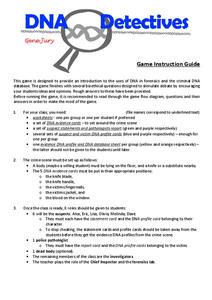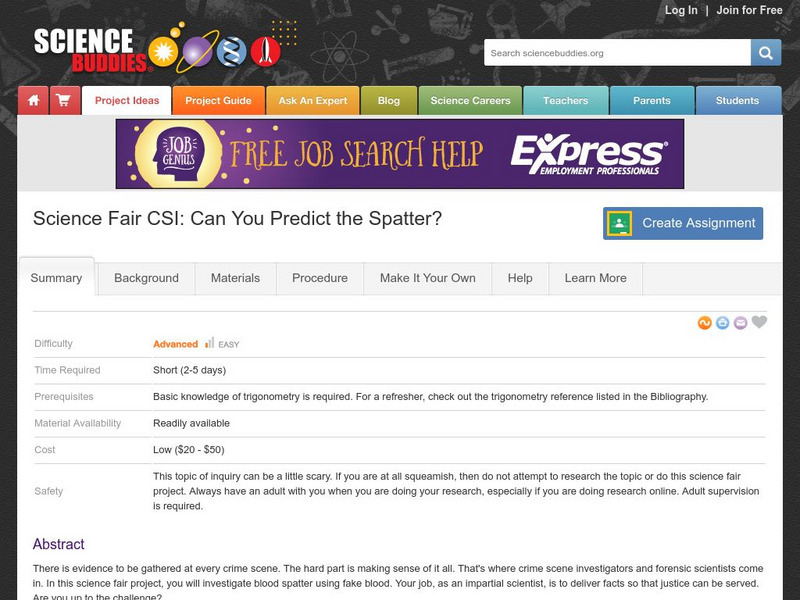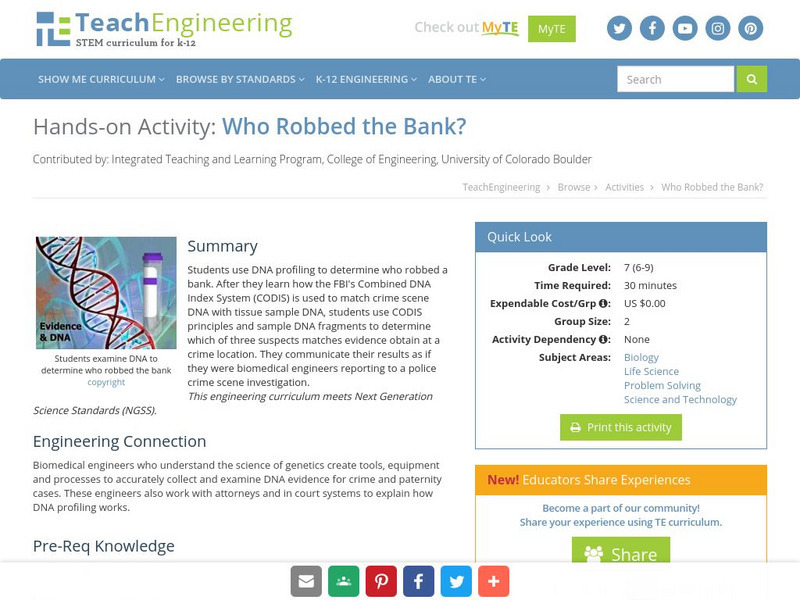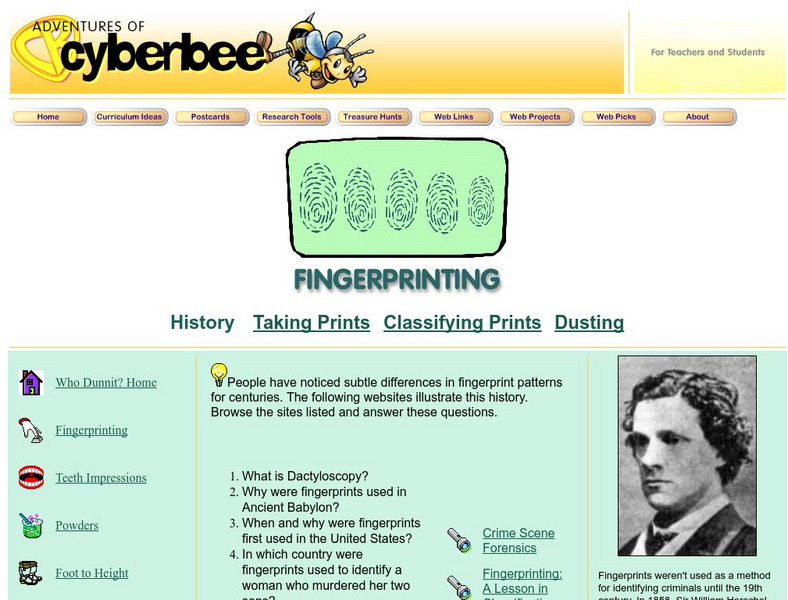PBS
Print Hints
It would be a crime not to give the lesson a chance! An inquiry-based lesson has pupils assume the role of crime scene investigators as they make observations about shoe prints. They look for patterns in the prints such as distance and...
Center for Technology in Teaching and Learning
CSI: The Experience - Family Forensics
Forensic scientists depend on their observation skills to analyze evidence down to the molecular level. Middle and high schoolers practice making observations and predictions with a series of crime scene activities, which includes a...
Mr. Roughton
CSI: Florence
Who done it? Class groups adopt the role of crime scene investigators and examine exhibits (primary source documents) to determine who attempted to assassinate the members of the Medici dynasty.
Gene Jury
DNA Detectives
Police find a man murdered in a local hotel, DNA everywhere, and now they need scholars' help. Budding detectives step into a crime scene playing the roles of victim, suspects, and investigators. They apply knowledge of criminology and...
PBS
Super Sleuths
There's no such thing as the perfect crime! Your class of sleuths are ready to investigate the trace evidence at a crime scene and compare it to a list of suspects. They use their investigative skills to record physical properties of the...
Howard Hughes Medical Institute
DNA Profiling Activity
Everyone loves a good mystery ... can your class actually solve one? Partnered pupils take on the role of forensic investigators during a three-part activity focusing on DNA evidence processing. Learners discover the methods used to...
Scouts
The Deadly Picnic: A Lab on Deductive Reasoning
Whodunnit? Find out who killed Mr. Brooks through a logical examination of evidence. Class members fill out a couple of data tables to help them pin down the suspect. After they've figured out just who the culprit is, pupils compose...
Other
Crime Scene Investigator: Developing and Lifting Footwear Impressions
A thorough explanation of how to make a footwear impression at a crime scene. Topics include equipment needed, the technique used, documentation, personal safety, and more.
Indiana University
The Case of the Missing Computer Chip
Have your teams of students solve the simulated crime scene using clues presented in this thorough forensic lesson plan.
Science Buddies
Science Buddies: Science Fair Csi: Can You Predict the Spatter?
There is evidence to be gathered at every crime scene. The hard part is making sense of it all. That's where crime scene investigators and forensic scientists come in. In this science fair project, you will investigate blood spatter...
Cyberbee
Cyberbee: Who Dunnit?
If you are a crime scene investigation (CSI) fan, then you will love this site! You get to be the detective by examining the evidence, viewing the crime scene, dusting for fingerprints, interviewing the suspects, and solving the crime.
Indiana University
A Crime Against Plants
Have your students delve into the evidence involving a small tree and arrive at an explanation of what happened in this thorough lesson plan site. .
TeachEngineering
Teach Engineering: Who Robbed the Bank?
Students use DNA profiling to determine who robbed a bank. After they learn how the FBI's Combined DNA Index System (CODIS) is used to match crime scene DNA with tissue sample DNA, students use CODIS principles and sample DNA fragments...
National Health Museum
Access Excellence: Dna Detectives
A hands-on activity from Access Excellence for advanced biology classes. Students are given a crime scenario and three suspects. Their mission is to determine 'Who Dunnit?' by obtaining and analyzing DNA samples. Requires extensive...
Cyberbee
Fingerprinting
Learn everything you ever wanted to know about fingerprinting! Provides links to a brief history of fingerprinting, FBI Kids site, a lesson in classification, fingerprinting identification and a game.













